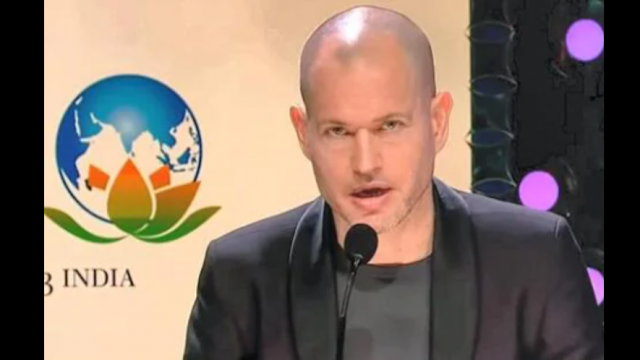I Stand by Each and Every Word I Said: Nadav Lapid
By
Daanish Bin Nabi
Israeli filmmaker Nadav
Lapid has been in the eye of a storm since the International Film Festival
of India (IFFI) in Goa, where, speaking for the jury he headed, he said it
found The Kashmir Files, a film by Vivek Agnihotri, “vulgar propaganda” unfit
for an artistic competition. The film was widely promoted by ruling party
leaders in India despite concerns that it could spark discord. The film deals
with the exodus of Kashmiri Pandits from the Kashmir valley in the nineties,
during the onset of militancy in the region. Critics in India have also called
it a divisive, one-sided and politically-motivated cultural project.
Independent journalist Daanish Bin Nabi
recently asked Lapid about the controversy his statement sparked. Edited excerpts.
Danish Bin Nabi: Many Indian media outlets are running a story
that you have apologised for your comments on The Kashmir Files at IFFI. Do you
regret or stand by what you said?
Nadav Lapid: I said that my speech
about the movie The Kashmir Files was manipulated as if I was ignoring or
minimising the tragedy of Kashmir and that if someone, especially the victims
or their relatives, were hurt, I am sorry. But I stand behind each and every
word I said in my statement. Yesterday (Thursday), my fellow jury members
tweeted what I have been saying from the very first day. That my statement
reflected the full jury’s opinion and not only my personal view, and that we
all share the vision of this movie and the necessity to talk about it openly. I
think it is extremely important since, with manipulation, it is easier to turn
what I said into a personal issue.
DBN: The Israeli ambassador to India has come out against you
openly. How do you take this? Do you feel betrayed by your fellow citizens?
NL: The Israeli ambassador
took his part in manipulating my statement to attack me. He was there when I
was on the stage and knew very well that I was criticising the movie and only
the movie. As someone who admitted on-stage that he does not watch films, maybe
he should be humble before giving statements about a domain in which he is
ignorant.
I was not surprised,
however, by his total misunderstanding of the concept of freedom of speech and
the right and duty of an individual to express his deep truth.
Unfortunately, despite his
long experience, he does not understand what it means to simply state your
belief. He was talking to me like a father whose naughty son had not done his
homework. It was pathetic.
The fury of certain Indian
people against my words was at least authentic. I can understand them. But...I
wonder whether now, after the other jury members have declared what I said was
our common statement, the French, the Spanish and the American ambassador will
condemn their respective fellow citizens. I am sure they won’t. Luckily, they
are better diplomats, more honest, courageous and less populistic than this
person.
DBN: Can you explain what makes you feel ‘The Kashmir Files’ is
propaganda?
NL: I have already explained
it a thousand times. I hardly talked about my own films as much as I talk about
this one. The film is totally flat; the bad play the bad ones, and the good
play the good ones. The bad are ugly and repulsive, while the good are marvellous.
It presents no context and endless cheap cinematic manipulations. I can go on,
but I think this much is enough.
DBN: How vital is cinema in propagating a particular narrative?
And equally, is the government duty-bound to cross-check every film to maintain
social harmony between diverse groups?
NL: The role of government, in
my opinion, is to understand the essential importance of cinema by supporting
it without expecting anything back. The moment you start to push conditions: I
want films that will promote this or that, I want only commercial films etc.,
everything is ruined.
DBN: Did you expect such a backlash in a secular country like
India?
NL: I knew that it [the film]
was a sensitive matter, but I am amazed that in a huge country like yours,
people have been obsessively talking about it for already three days. If the
discussion had not been so violent, it would have been almost impressive. I
wish, in a way, that people in Israel would have been so concerned about
cultural issues.
The problem, as I
mentioned, is that it [the discussion on my statement] is extremely violent and
does not enable real complexity. I am a foreigner, of course, but looking from
the outside, maybe it is not a good sign for a society when the simple act of
saying your subjective belief brings about such fury. Of course, it makes
people afraid to talk.
DBN: The Indian media hounded you. Do you feel the media here is
behaving objectively and professionally?
NL: I gave some interviews,
mainly on TV, to clarify my ideas when I felt my statement had been
manipulated. Some of the journalists were professional and serious, while
others were extremely aggressive—as if their only wish was not to hear my truth
as I phrase it but to make me fail, to win a battle against me. Luckily or
unluckily, I grew up in an aggressive society in Israel, so I knew these types
of people and felt prepared. But maybe they [Indian journalists] should at
least make some effort to hide their agenda.
Published
by Newsclick on 04 December 2022



